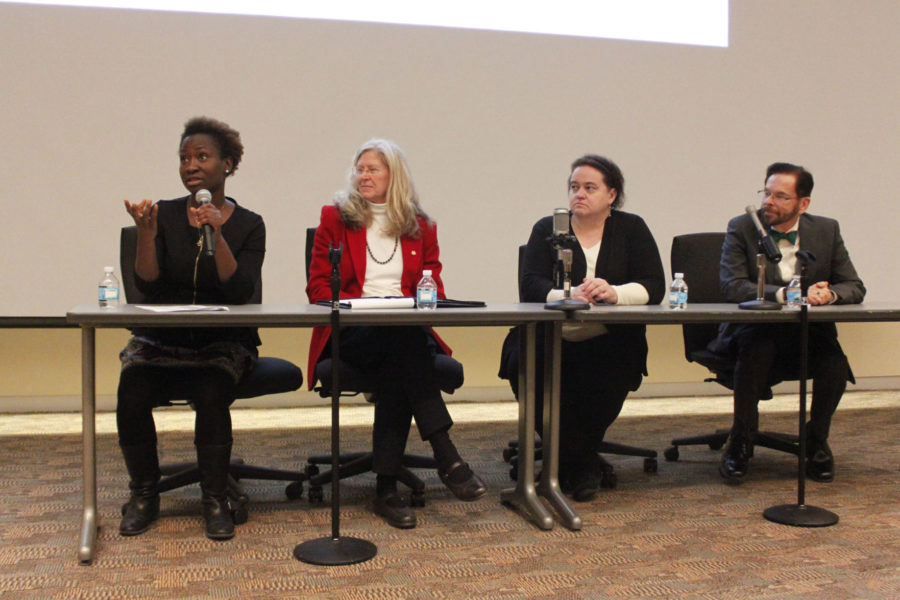Ebola 101 discussion clears up common misconceptions
November 11, 2014
Several University departments held an Ebola 101 Panel Discussion on Monday to dispel misconceptions about the recent viral outbreak and to help inform the public about the University’s involvement with the affected areas.
The event was held at the Siebel Center and organized by the University’s Center for Global Studies, Center for African Studies, Global Health Initiative and the University YMCA in response to the recent outbreak of the Ebola virus in West Africa, particularly in the countries of Guinea, Sierra Leone and Liberia.
“We have a relationship with a university in Sierra Leone, and we had students and faculty who were in Sierra Leone over the summer and developed some relationships there,” said Jeremie Smith, outreach coordinator for International Programs and Studies. “When the Ebola outbreak began, there was an initial feeling that we should learn more about what’s going on so we can help.”
The event was free and open to the public.
“I think one of our objectives is just to provide an opportunity for accurate information,” said Gregory Damhorst, head of the University’s Global Health Initiative. “What the general public is hearing about Ebola is often either misguided or somehow politically exploited. A lot of the fear, I think, has come from that.”
Get The Daily Illini in your inbox!
He added that the general public has heard all about the few people in the United States who have contracted the virus, but not as much about the thousands of people in West Africa who have been affected, both directly and indirectly by economic conditions and school closings.
The discussion panel for Monday’s session of the event consisted of several University faculty members, including Gay Miller, professor of pathobiology; Brenda Wilson, professor of microbiology; and Robert Palinkas, director of McKinley Health Center.
Mabinty Tarawallie, a University alumna from Sierra Leone, also spoke at the discussion. Tarawallie spoke about how the outbreak has negatively affected her home country in terms of education, travel and personal interactions.
Because schools have been shut down, the government is using radio and television as a means of education, though not everyone has access to such technology, Tarawallie said.
“Ebola is threatening to reverse years of educational progress in West Africa, particularly Sierra Leone,” she said.
During the presentation, the panel covered a variety of factors of the Ebola outbreak, including disease transmission, microbiological perspective of the virus, symptoms, public perception and social impact of the disease in affected areas. They also addressed several commonly asked questions that have come up since the beginning of the outbreak, such as why a vaccine has yet to be developed for the Ebola virus.
“It has a lot to do with the fact that there haven’t been that many outbreaks before,” Wilson said. “We’re seeing a huge outbreak now, but prior ones were relatively limited.”
Toward the end of the event, audience members were able to direct any questions they had to the panelists.
Another session of the Ebola 101 discussion is scheduled for Nov. 17 and will be held at 5:30 p.m. at the Urbana Free Library.
Camille can be reached at [email protected].







